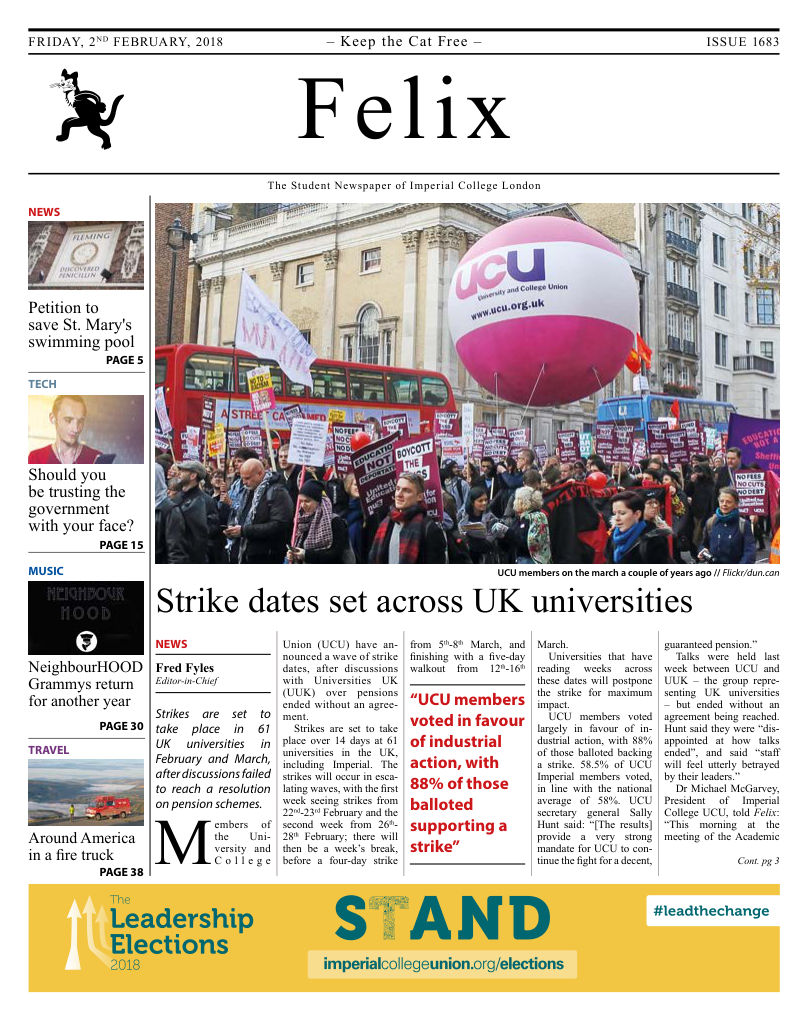Imperial is now the most unequal university in the UK – it doesn’t have to be
While there are several ways to tackle this issue, moving our campuses out of Central London seems like a good start.

What a great time to be an Imperial student. We have finally beaten Oxbridge at some ranking! What is it? Student satisfaction? Employability? Innovation? It doesn’t matter! We beat them!
Except it does matter. Enormously. According to a UCAS report, we have overtaken Oxford and Cambridge to become the UK’s most unequal university. We have the lowest proportion of students coming from low-income areas in the UK compared to any other university in the country.
Let’s be honest, though. This was never a secret. We all study or work here, we don’t need any report to tell us what we already know. Imperial is a bastion of privileged education.
And funnily enough, if I understand the data correctly, the report only focuses on UK students, sorting them from low-income to high-income based on the areas where they went to school. It would be interesting to publish some sort of Gini coefficient based on data from Home, EU and overseas students, even if the results are more than predictable: if Imperial is the most international university in the UK, and considering the fees paid by overseas students, it’s easy to infer how much more unequal this university might be. And it might get worse in the future. Brexit is coming very soon, meaning EU students will probably start to classify as general overseas students, jacking up their fees and removing their Student Finance.
I don’t have a problem with studying surrounded by rich people. That’s not an issue in itself. It can bring up some side issues, like the fact that if you grow up in a wealthy bubble you can end up out of touch with the rest of society’s problems. But this is always avoidable if your intentions are good enough and you put in a bit of effort.
The real issue is providing society with equal opportunities for students from every background to have a shot at studying at a world class university.
An interesting thought to consider is how the average graduate job destination would change if Imperial weren’t that wealthy. We already know banking is the top industry of choice for Imperial undergraduates, after health and social work (because, you know, medics). Would this fact stay the same? On the one hand, one would think that students from high-income families are, at least stereotypically, more pressured to succeed – the expectations they have to fulfil are higher compared to someone who’s the first in her family to attend university. Their definition of success is shaped by their surroundings (so maybe earning less than £40k just after graduating won’t feel like enough).
On the other hand, coming from a higher-income family can provide you a more effective safety net after you graduate, which means it’s easier to refuse jobs you don’t want and be a bit more vocational, while a lower-income student might feel pressured to take the first job they come across. These are all generalisations of the choices individuals make under different circumstances, but it’s always interesting to consider what forces are at play regarding career decisions when you come from different backgrounds.
But going back to the issue of equal opportunities, we hear a lot of talk referring to the high grades needed to enter Imperial, and the fact that, on average, schools from poorer areas tend to achieve lower grades. This is the problem with the data: it’s hard to decouple the problem of inequality at Imperial with the problem of lower grades from poorer backgrounds. At first, it feels like the solution lies in trying to improve the conditions for poorer students and come up with strategies that will improve their grades during high-school. And this is true to a certain extent. But we can’t ignore two facts: firstly, that it’s harder to focus on your grades when your family is having a hard time; secondly, that part of the value proposition of private schools is better performance. As long as A-levels remain a competition, private schools will fight to the death to get their students up in the performance charts.
“The cost of life in central London has to be driving some of this inequality”
It makes sense to consider asking for different grade requirements depending on your background. But it’s not the only option we have to consider, and there is a large debate to be had over the fairness and effectiveness of such an approach.
For Imperial, however, there are other approaches that might help with the issue which don’t involve grades at all. Because it’s not only a grades problem. Imperial’s main campus is in Kensington, which is arguably one of the most expensive neighbourhoods in all of Europe. There is no way that’s not a large deterrent when low-income students consider their applications. To go to lectures, most undergraduates will have to be happy paying their £175/week or paying a bit less, or alternately, commuting for hours and blowing all the money on transport anyway. The cost of life in central London has to be driving some of this inequality. OK, some brave souls get a part time job to support the cost of living. If they are able to, for example, work at the Union bars and not have their performance at university being affected by it, they are absolute heroes. Just overcoming the accumulation of lack of sleep after working night shifts and being able to finish their coursework is a huge feat in itself.
And yet, most students wouldn’t welcome a big campus move to a more suburban area. The move is already arguably happening for some parts – postgraduates are being moved in great numbers to the White City campus, and halls in Acton have been up and running for three years now. It does seem like the longer-term strategy involves moving as much as we can out of central London.
But we don’t want to move. OK, I get it. It’s nice to be in South Kensington, surrounded by museums and Hyde Park. Gazing at a lit up Natural History Museum every night when I come home from the library is a beautiful sight I still can’t get used to. But we have to face the hard facts. The price to pay for all these privileges is studying in the UK’s most unequal university. And without an eventual move of all the campuses out of Central London and into areas such as Acton and White City, Imperial’s inequality will keep increasing. The choice is hard, but a more inclusive community with equal opportunities is something worth giving up your privilege for.









